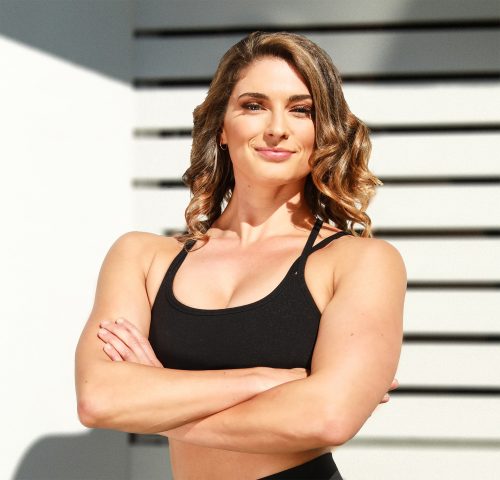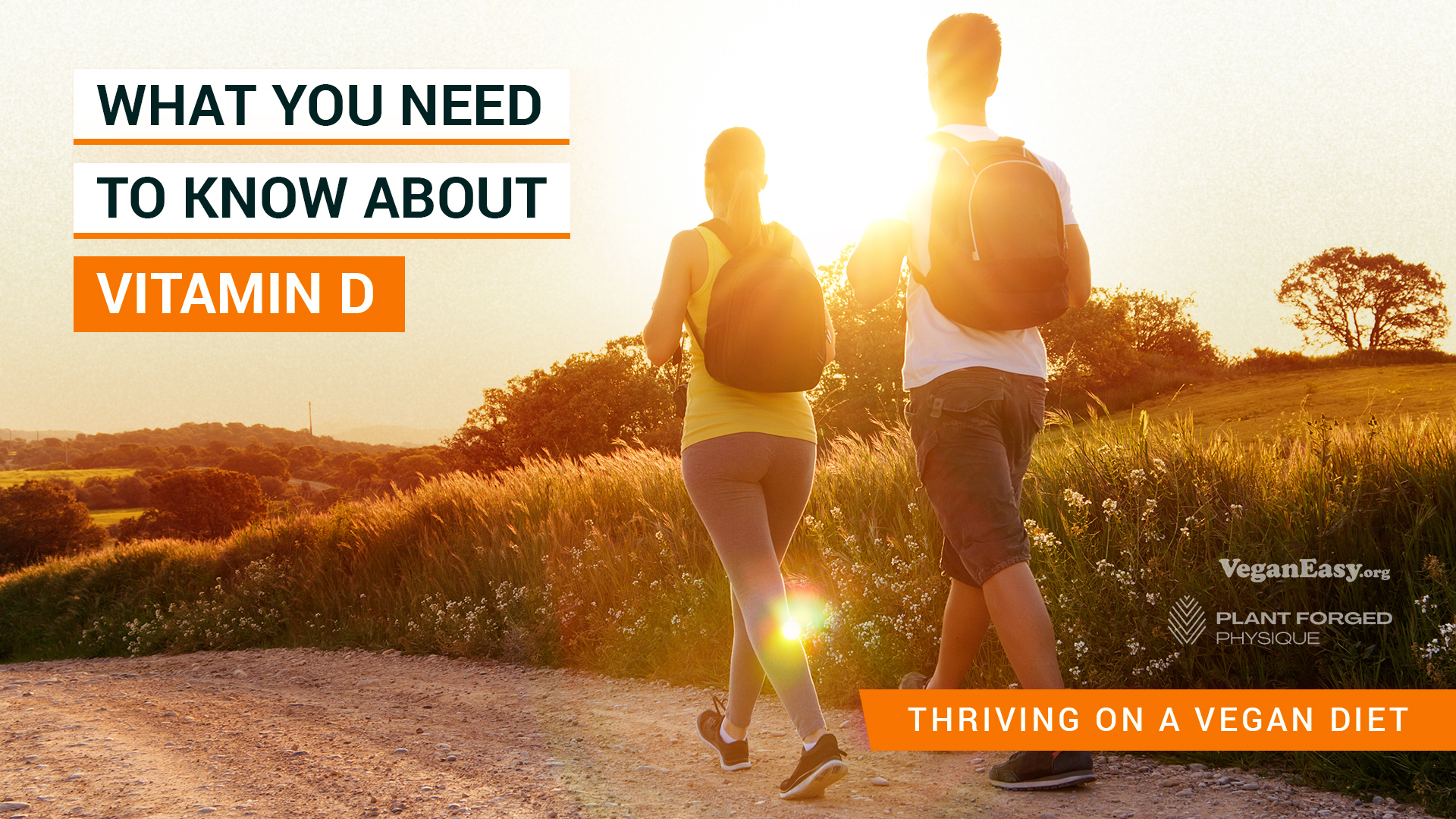
 Micronutrient mini-series
Micronutrient mini-series
This article series is a spotlight on the micronutrients, vitamins and minerals you need on a vegan diet. We look at where you can get them, how much you need, if supplementing is necessary, and tips for incorporating them into your plant-based diet.
Article by Caitlin Adler, a vegan Accredited Sports Nutritionist, Strength & Conditioning coach and bodybuilder at Plant Forged Physique. Her passion is helping vegans achieve their health and fitness goals with evidence-based guidance and expertise. Check out their free Vegan Supplement Cheat Sheet and other resources.
Vitamin D is a fat-soluble vitamin that our body can make from sun exposure and get from food. It helps with the absorption of calcium and phosphorus, which play an important role in bone development and maintenance. Emerging research also suggests vitamin D plays a key role in gene function, protein synthesis, hormone production, immune system response, and cell growth.
Vitamin D deficiency can develop from not getting enough from food, low amounts of direct sun exposure, issues with low absorption, or having a higher metabolic need for the vitamin.
If untreated, prolonged vitamin D deficiency can develop into rickets – a condition in infants and children that causes bone deformities – or Osteomalacia – weak and softened bones which occurs in adulthood. It can also contribute to the development of osteoporosis, where bones become brittle and weak.
How much?
The Recommended Allowance for anyone aged 1-70 years is 15 mcg daily for men and women, and for adults >70 years it is 20 mcg daily.
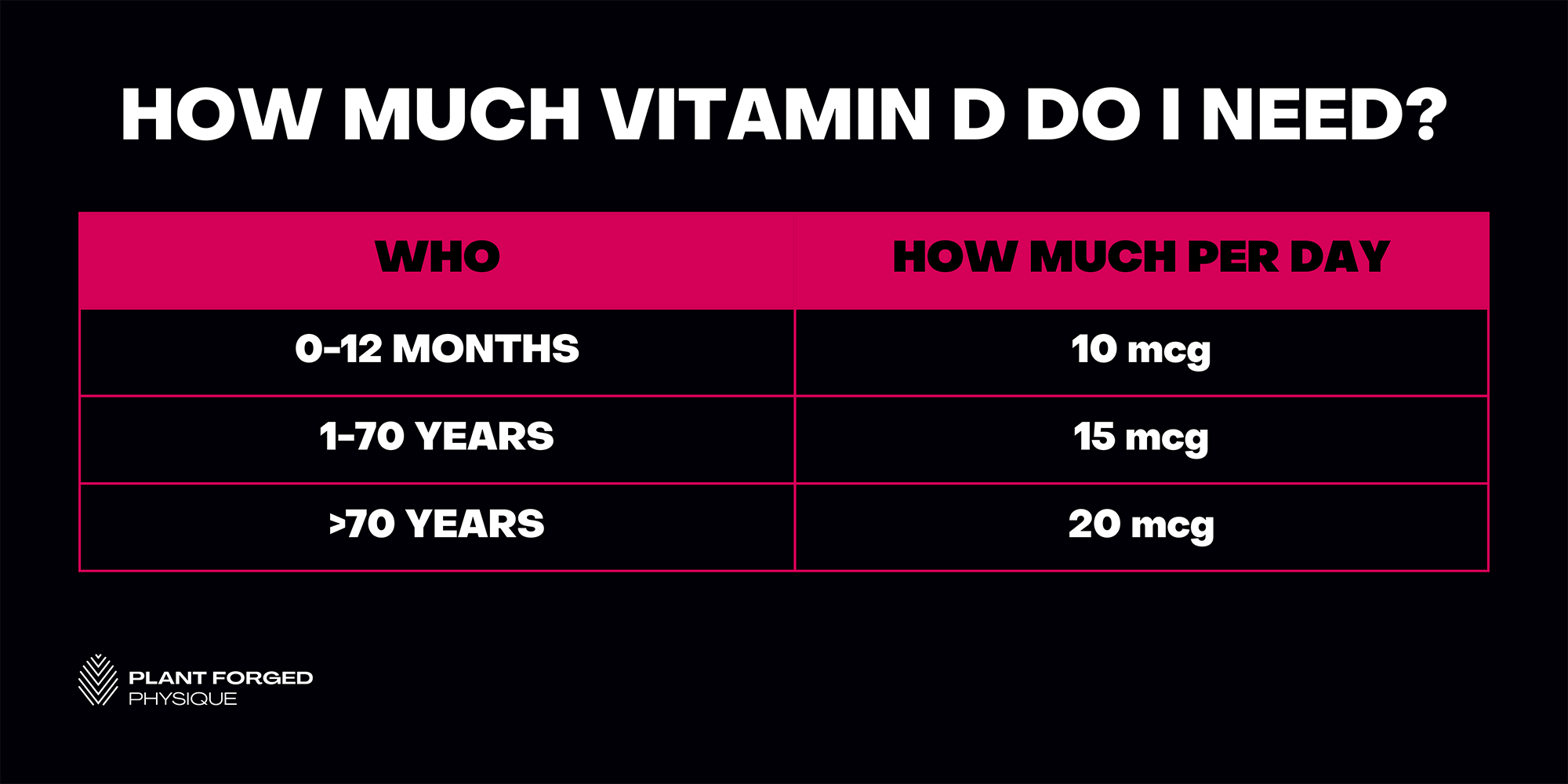
There are very few foods that are naturally rich in vitamin D and sun exposure can vary greatly globally. So an estimated 1 billion people worldwide get insufficient amounts of vitamin D and deficiencies can be found in all ethnicities and age groups.
However, food sources of vitamin D are primarily from animals like some fish, as well as the cows liver and egg yolks.
So vegans and vegetarians, people who are lactose intolerant, or have a fish or egg allergy are in a higher risk category for a deficiency. Additionally, people with inflammatory bowel disease, who have obesity, or have undergone gastric bypass surgery are at risk of deficiency due to how these impact the vitamin’s absorption.
Where from?
Vitamin D can be obtained from both our food and sun exposure.
Food
Vegan sources of vitamin D include products that have been fortified with vitamin D like juice, plant milks and cereals, and some mushrooms.
There are even mushrooms available that have been treated with UV light to increase their levels of vitamin D.
Fortified foods provide most of the vitamin D in Western diets. For example, almost all of the U.S. milk supply is fortified with about 3 mcg per cup.
Plant milks are often fortified with similar amounts of vitamin D to those in fortified cow’s milk.
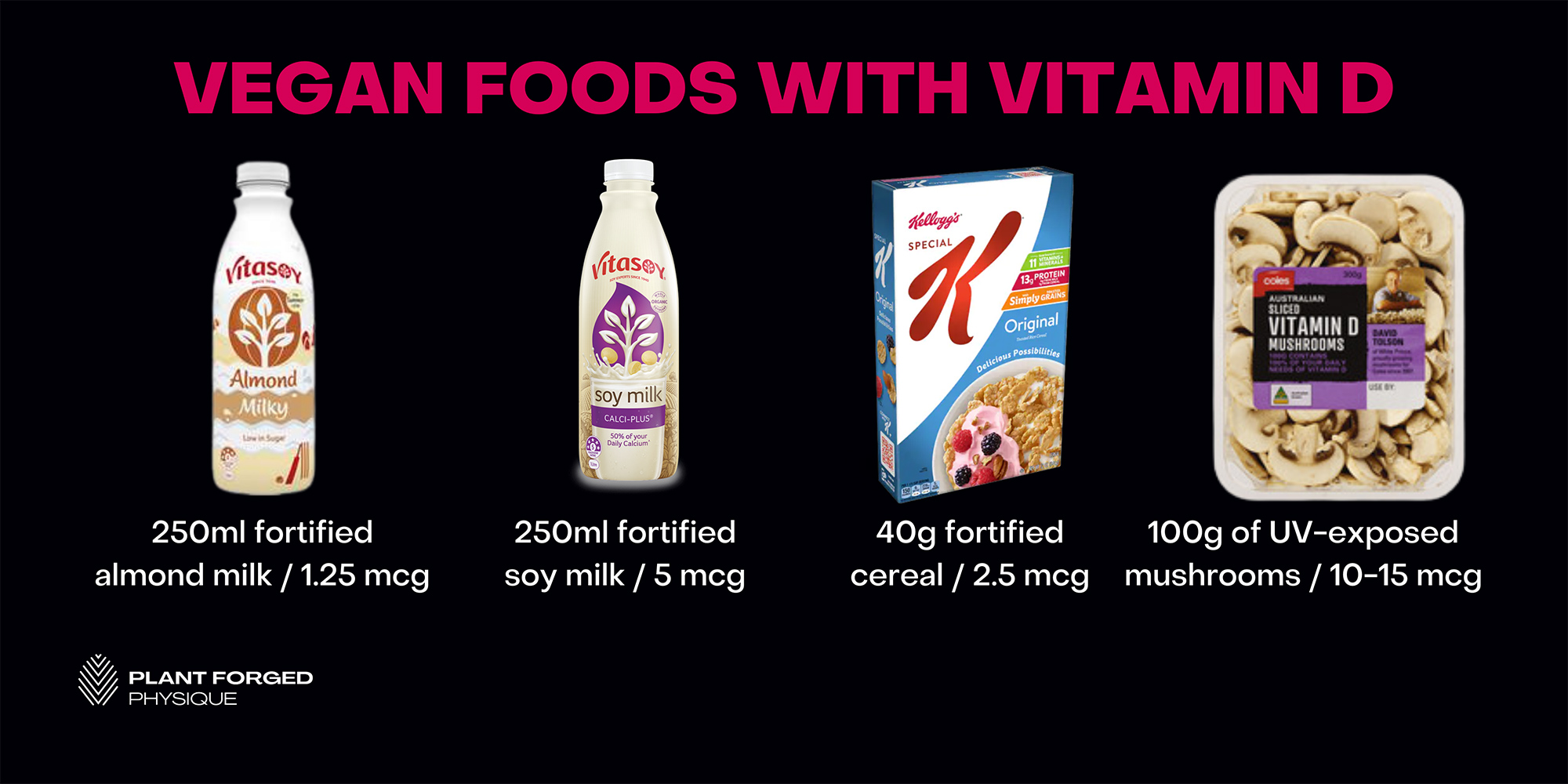
Sun exposure
Food alone can rarely provide enough vitamin D, so most people meet some of their vitamin D through exposure to UVB radiation from sunlight.
It’s difficult to determine the exact amount of sun exposure needed to maintain adequate vitamin D because of factors like individual responsiveness, season, time of day, cloud cover, smog, and sunscreen use. UVB radiation does not penetrate glass, so exposure to sunshine indoors through a window does not produce vitamin D. The elderly and those with dark skin aren’t able to produce as much vitamin D from sunlight.
For most Australians, adequate vitamin D levels are generally reached through regular incidental exposure to the sun without sunscreen. This is gained from exposure to peak sunshine for about 10-15 mins in summer and about 20-30 mins in winter.
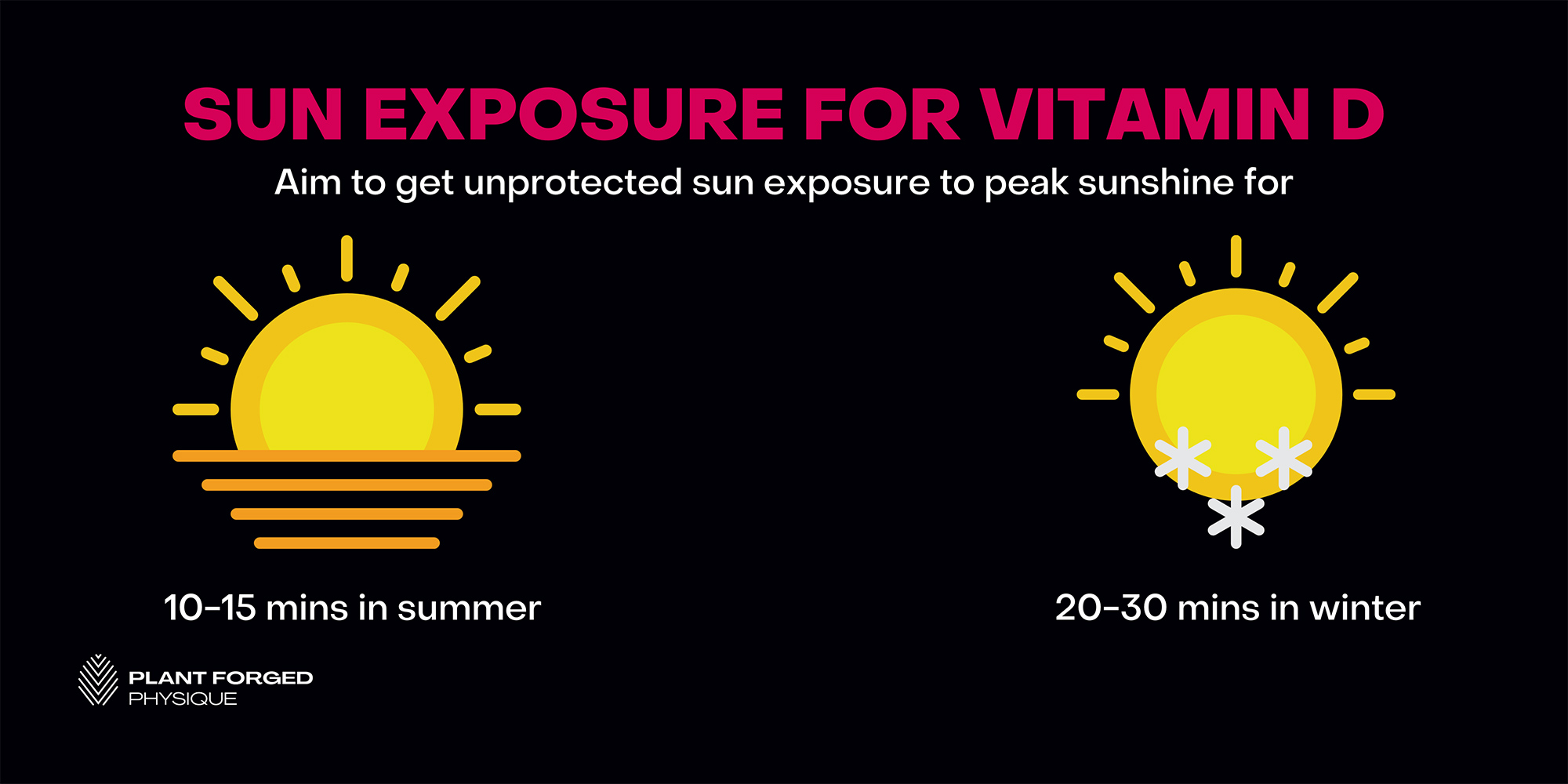
Supplementing
Vitamin D supplementation generally isn’t needed unless deficiency or low levels are diagnosed from a blood test.
Dietary supplements can contain vitamins D2 or D3. Vitamin D2 is made from exposing yeast to UV. While D3 can be made from either lichen, a type of fungus, or lanolin, which is a product of sheep’s wool and isn’t vegan. Both D2 and D3 raise Vitamin D and have the same ability to cure rickets, but D3 is slightly more effective at increasing levels and sustaining them for longer. So if deficiency is diagnosed and a supplement is prescribed, it’s worth checking the source of any vitamin D3 product to ensure it’s vegan.
Vegan Vitamin D products
If Vitamin D deficiency is diagnosed and it’s recommended you take a supplement, below is a list of vegan D2 and D3 products.
Vitamin D2
Vitamin D3
- MRM Nutrition, Vegan Vitamin D3
- Natural Factors, Vegan Vitamin D3
- NATURELO, Vitamin D3
- Doctor’s Best, Vegan D3
- Country Life, Certified Vegan D3
- Vegetology Vitashine Vegan Vitamin D3
- Whole Earth & Sea Vegan Vitamin D3 Capsules
Key takeaways
Vitamin D is uncommon in foods but particularly plant-based sources. So most people get their vitamin D through sun exposure. Make sure you consume fortified foods when you can, and get adequate sunshine each day.
Summary
- Vitamin D plays an important role in bone health, as well as gene response, protein synthesis, producing hormones, our immune system, and cell growth.
- Deficiency can occur for a number of reasons and vegans are one category more likely to have low Vitamin D levels
- Fortified foods make up the majority of consumed Vitamin D, but food alone rarely provides enough so most people get it through exposure to sunlight
- Try to go outside around midday for about 10-15 mins in summer and about 30 minutes in winter to get peak sunshine exposure
- Supplementation is only recommended if low levels are diagnosed. Supplements are either made from D3 (check if they’re vegan) or D2
FREE VEGAN SUPPLEMENT CHEAT SHEET
Want to learn more about supplementing as a vegan?
Download the Free Vegan Supplement Cheat Sheet from Plant Forged Physique.
This handy evidence-based guide outlines exactly what supplements are needed to improve muscle gain, health, performance, recovery, and fat loss – and which ones are a waste of your time and money!
